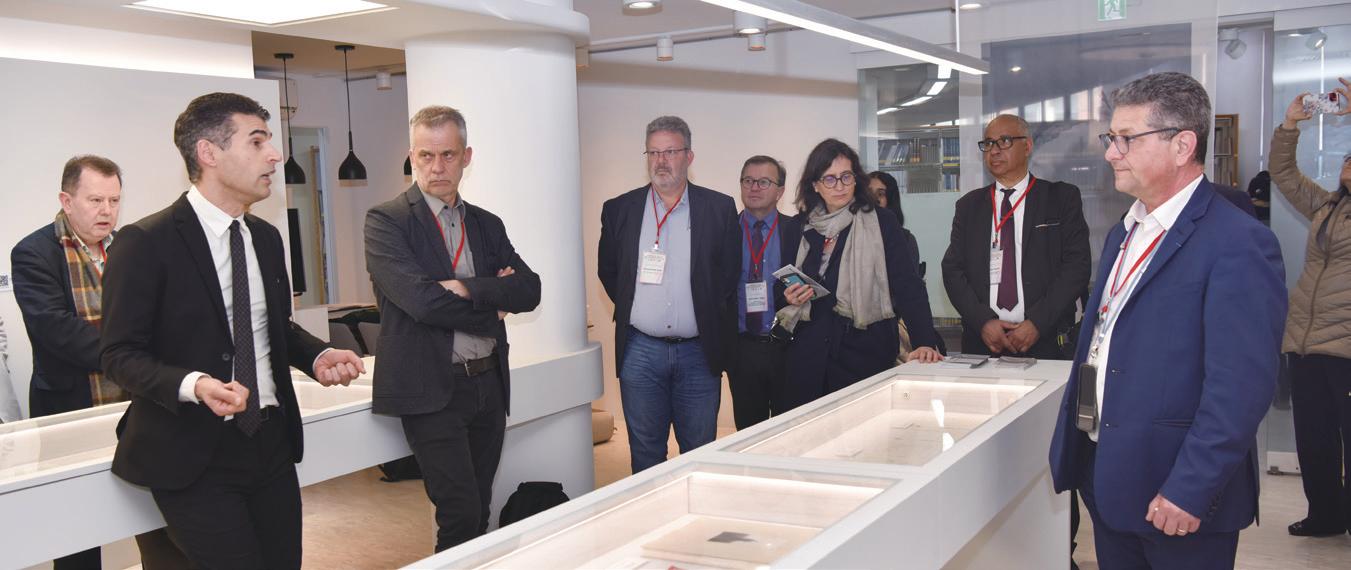
COVER STORY: NTNU'S CONTRIBUTIONS TO A SUSTAINABLE WORLD FOCUS: BRIDGING GLOBALIZATION AND CULTURAL HERITAGE IN HIGHER EDUCATION



COVER STORY: NTNU'S CONTRIBUTIONS TO A SUSTAINABLE WORLD FOCUS: BRIDGING GLOBALIZATION AND CULTURAL HERITAGE IN HIGHER EDUCATION

At NTNU, a deep commitment to innovation, sustainability, and cultural diversity is woven into the fabric of our academic endeavors. This issue showcases how our faculty, students, and partners are driving forward these themes through impactful research, education, and community engagement.
Our faculty's groundbreaking work in renewable energy exemplifies our dedication to sustainability. Notable projects include the development of advanced solar cells using two-dimensional semiconductors and hybrid perovskites, as well as collaborations to produce green hydrogen through water electrolysis with renewable energy. These initiatives not only address global environmental challenges but also set new benchmarks in green technology.
Equally important is our focus on linguistic diversity and cultural integration. Our university offers a rich array of courses in English, Taiwanese, Hakka, indigenous languages, and sign language. This inclusive approach is evident in programs like the Bachelor's Degree Program in Global Studies in English and Professor Frank Wong’s innovative Python programming course taught in Taiwanese. These efforts enrich our educational environment and preserve Taiwan's cultural heritage.
International partnerships further amplify our impact. The recent Taiwan-France Higher Education Leaders Forum exemplifies our dedication to fostering global academic alliances, bringing together representatives from over 30 Taiwanese and 20 French institutions. This collaboration underscores the resilience and growth of our international partnerships, even in challenging times.
Through these stories, we highlight our university’s dynamic community and its unwavering commitment to excellence. Our collective efforts in research, education, and global collaboration are driving progress and fostering a brighter, more sustainable future.
National Taiwan Normal University Newsletter
Issue 06
AUTUMN / WINTER 2024
Publisher Cheng-Chih Wu
Publishing National Taiwan Normal University
Editorial Director
An-Pan Lin
Editor-in-Chief
Min-Ping Kang
Editorial Board
Ying-Shao Hsu
Yi-De Liu
Li-Chun Teng
Copy Editor
Daniel Hu
Content
Yvonne Kennedy
Photography
Shi Chang
Pade Technology
An-Li Tsai
Graphic Design
UNIQUE Design & Advertising
Contact Us
WEBSITE www.ntnu.edu.tw
LINKEDIN national-taiwan-normal-university
MAILBOX pr@ntnu.edu.tw
Cheng-Chih Wu President National Taiwan Normal University
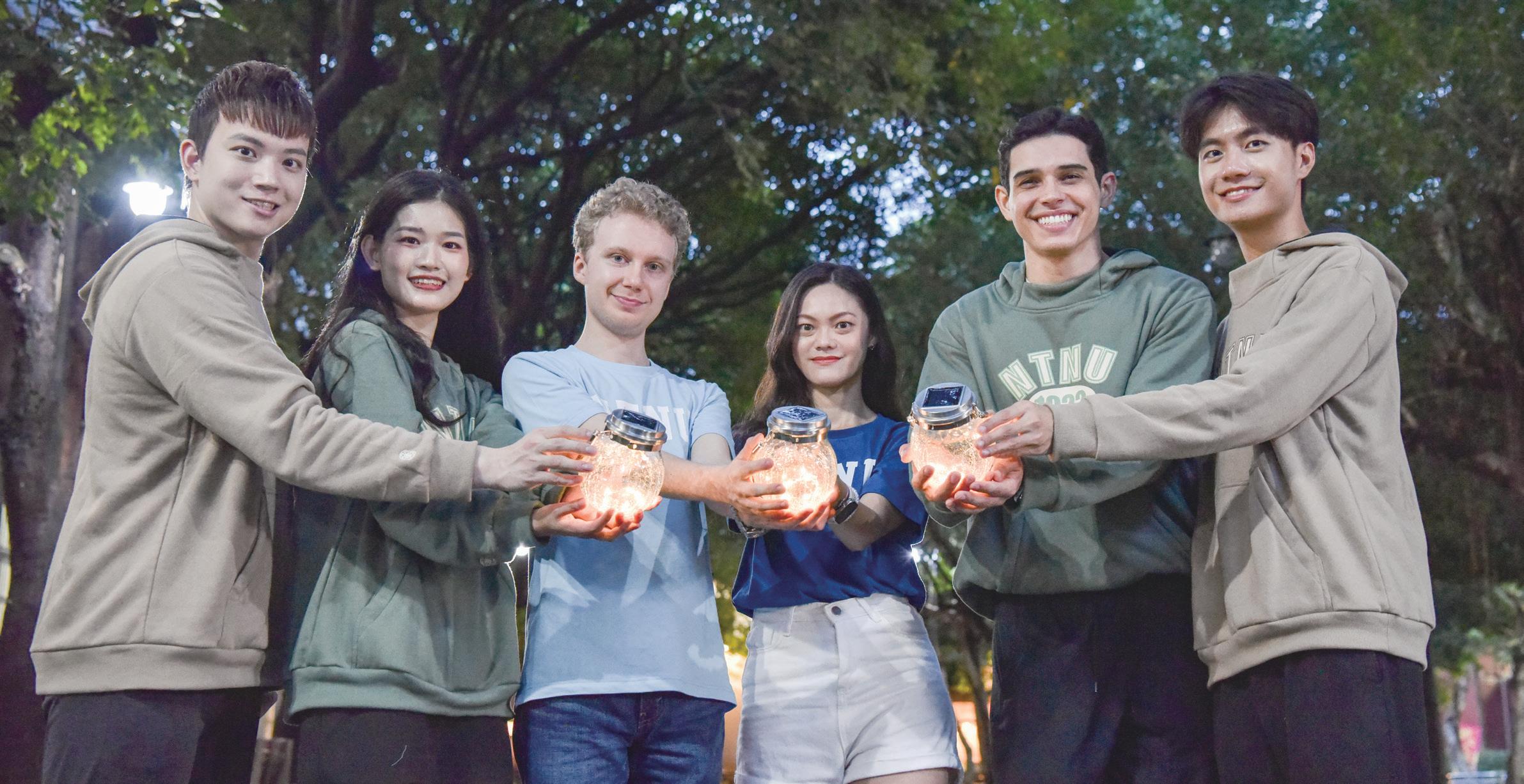

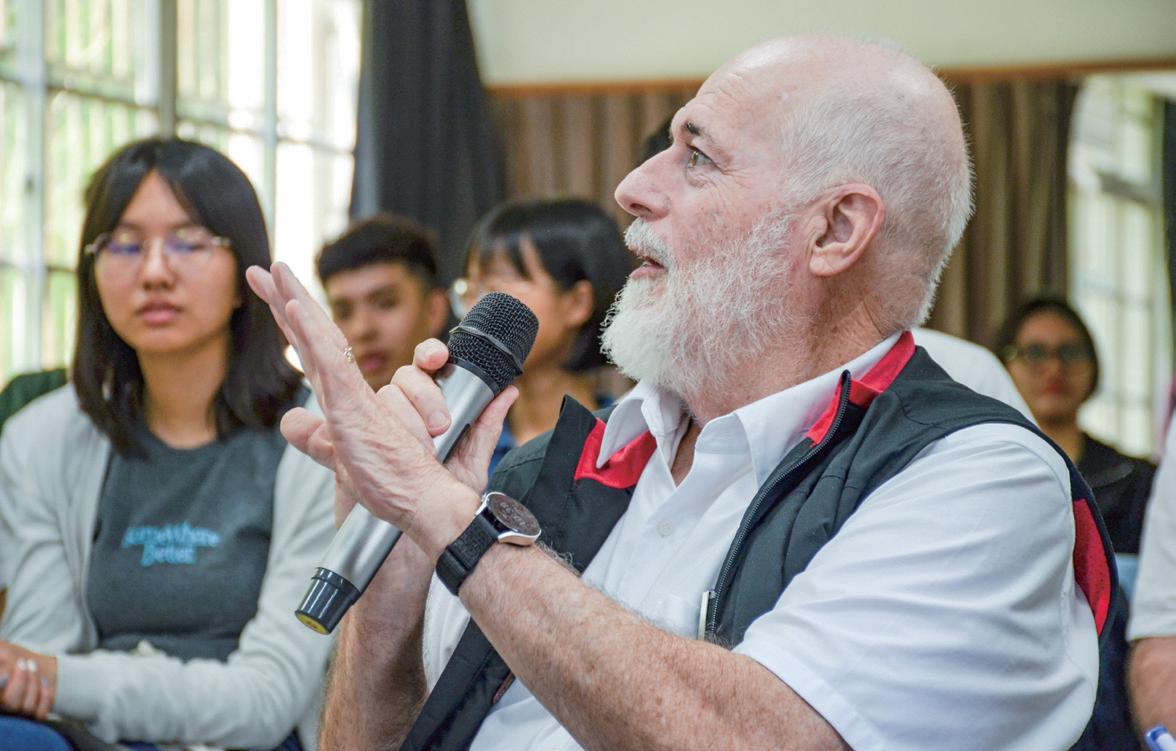
NTNU faculty members explore pioneering approaches and technologies in the energy sector.
Hwa-Dong
Liu, College of Technology and Engineering
This study introduces the Honey Bee Dancing (HBD) algorithm for Maximum Power Point Tracking (MPPT) in solar panels, inspired by the nectar foraging and communication dance of honey bees. Utilizing five bees that exchange information about nectar quantity and location through a dance, the algorithm mimics their behavior to identify the solar panel's maximum power point. Tested under uniform irradiance conditions (UIC) and partial shaded conditions (PSC), the HBD algorithm outperformed the PV panel Output Power and Load Relationship (OPLR) and the Perturb and Observe (P&O) algorithms in terms of efficiency and output power. Specifically, under UIC and PSC, the HBD algorithm achieved higher efficiencies (99% under both conditions) and output powers (120 W and 218 W, respectively) compared to the OPLR and P&O algorithms, demonstrating its superior MPPT performance. (Chen, W.-J., Farooqui, S.-A., Liu, H.D., Lai, S.-X., & Lin, P.-J. (2024). Published in Heliyon, 10(6), Article e27491.)
Yih-Guang Leu, Department of Electrical Engineering
Solar irradiance fluctuations, influenced by atmospheric conditions like aerosol levels, cloud coverage, and weather, challenge the integration of solar power into regional grids by causing unpredictable power availability. This study introduces a system for precise solar irradiance and power output estimation using all-sky image analysis and machine learning via long short-term memory (LSTM) models. The system's accuracy is evaluated with metrics such as mean absolute error, root mean square error, and the coefficient of determination, demonstrating its effectiveness in closely matching actual performance in solar power estimation. (Chu, T.-P., Guo, J.-H., Leu, Y.-G., & Chou, L.-F. (2023). Published in Solar Energy, 249, 495–506.)

Jeng-Han Wang, Department of Chemistry
Niobium-based compounds featuring Wadsley-Roth shear structures emerge as promising micrometersized lithium storage materials, bypassing the need for nanostructuring. Despite their notable electrochemical capabilities, the underlying lithium storage mechanisms remain unclear. Through operando Raman spectroscopy, we tracked vibration band changes in H-Nb2O5 during lithiation, linking structural changes to electrochemical behavior. With the aid of DFT calculations, we clarified the lithium storage process, highlighting preferred adsorption sites, alterations in the electronic structure, and lithium transport pathways. This study sheds light on the lithium storage dynamics in shear-structured Nb2O5, offering valuable insights for designing niobium-based high-rate lithium storage solutions.
(Li, T., Huang, S., Kane, N., Wang, J.-H., Luo, Z., Zhang, W., Nam, G., Zhao, B., Qi, Y., & Liu, M. (2023). Published in ACS Energy Letters, 8(7), 3131–3140.)
Ming-Kang Brad Tsai, Department of Chemistry
A systematic assessment of electrochemical CO dimerization on a Cu(111) surface is demonstrated. Solvation configurations were sampled at room temperature in the presence of adsorbates and the Cu surface. Energetics and work functions along the CO dimerization pathway were characterized with the inclusion of platetype electric force fields. The activation barriers and reaction energies of the CO dimerization process appear to be independent of external electrostatic perturbations, at approximately 0.95 eV and 0.35 eV, respectively, using constant-potential correction. These observations from current explicit simulations reaffirm that CO dimerization is a thermal-driven process. Electric force fields ranging from +0.2 V/Å to −0.2 V/Å can introduce effective electrochemical potentials from +1.766 to −0.565 V vs. the standard hydrogen electrode at pH 7. (Chen-Cheng Liao, Tsung-Han Tsai, Chun-Chih Chang, Ming-Kang Tsai (2023). Published in Chemical Physics, 568, 111821. 13, 1461.)
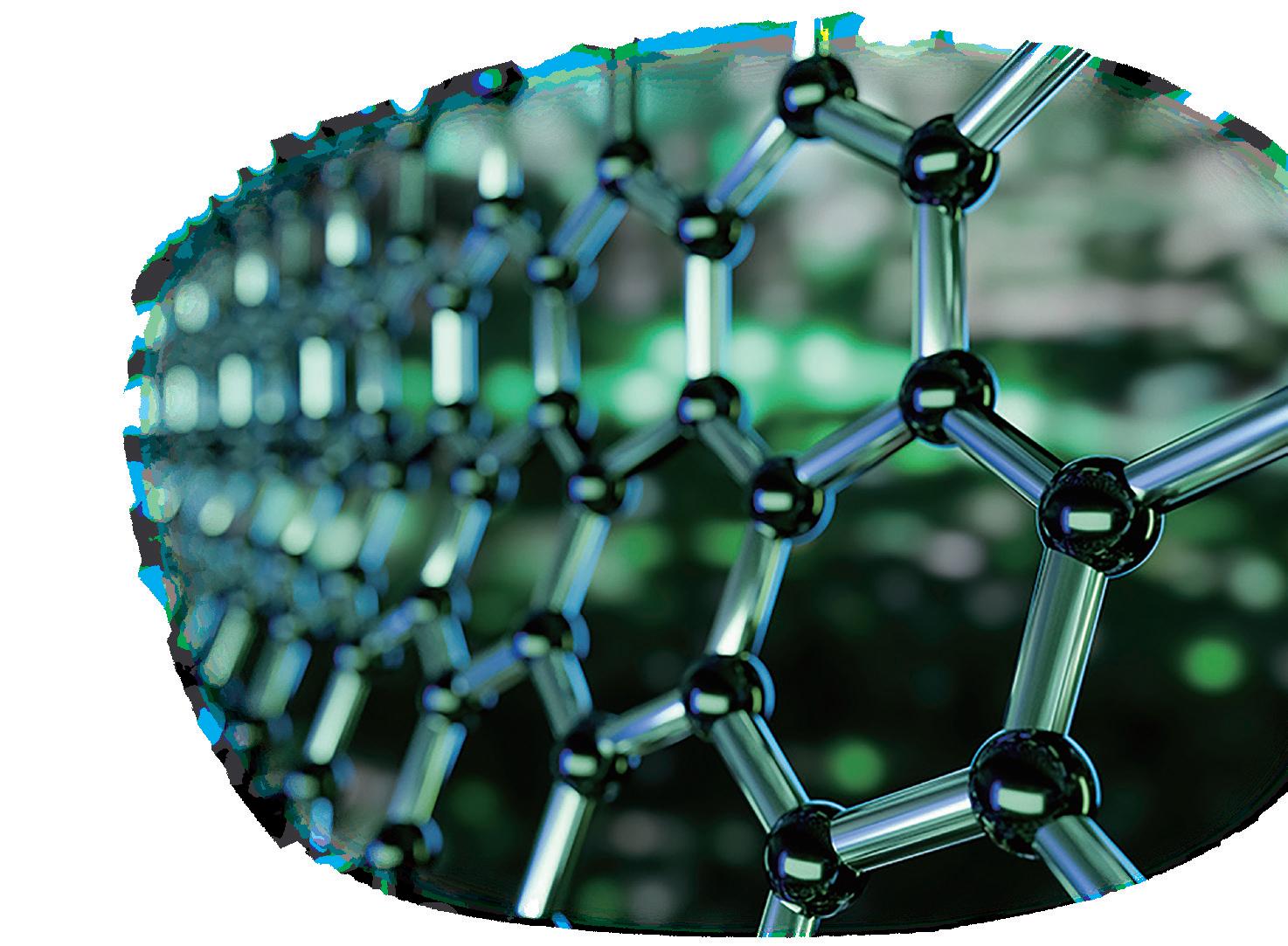
Hwa-Dong Liu, College of Technlogy and Engineering
Syuan-Yi Chen, Department of Electrical Engineering
This article presents an advanced home energy management system (HEMS) using an adaptive artificial bee colony (AABC) optimization to manage a residential microgrid connected to the main grid. It integrates a photovoltaic system (PVS), a battery storage system (BSS), and manages household electricity demands. The AABC HEMS optimizes power distribution among the PVS, BSS, and main grid, aiming to minimize electricity costs. It features three dc-dc converters controlled by an active dual-loop system for effective power management. Performance, evaluated under diverse load and photovoltaic conditions using a digital signal processor, demonstrates the AABC HEMS's superiority in reducing electricity costs compared to traditional strategies. (Chen, S.-Y., & Chang, C.-H. (2023). Published in IEEE Transactions on Energy Conversion, 38(1), 218-229.)
To mitigate partial shading effects on photovoltaic arrays, which can create multiple performance peaks, bypass diodes are implemented. However, traditional maximum power point tracking (MPPT) methods sometimes inaccurately find a local maximum power point (LMPP) rather than the optimal global maximum (GMPP), leading to inefficiencies. Addressing this, we introduce an energy-valley-optimizer-based (EVO) optimization technique, which accurately identifies the maximum power point (MPP) in partially shaded PV systems. The EVO algorithm enhances tracking speed and reduces power output fluctuations. Validated using the Typhoon hardware-in-the-loop (HIL) 402 emulator, EVO's performance is compared against the cuckoo search algorithm under similar conditions, demonstrating its efficiency in MPPT for PV systems. (Azad, M. A., Sajid, I., Lu, S.-D., Sarwar, A., Tariq, M., Ahmad, S., Liu, H.-D., Lin, C.-H., & Mahmoud, H. A. (2023). Published in Processes, 11(10), 2986.)

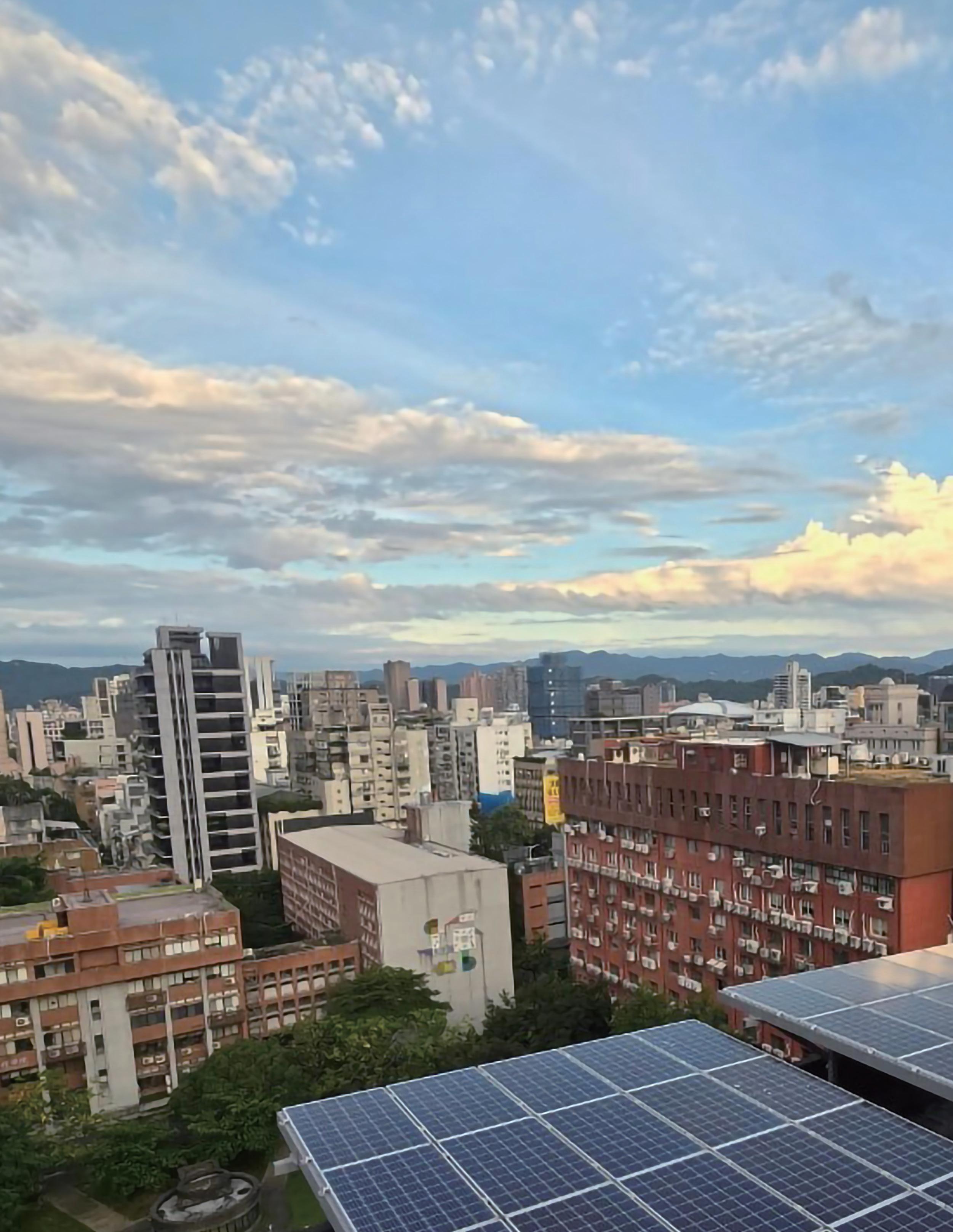
NTNU's Contributions to a Sustainable World
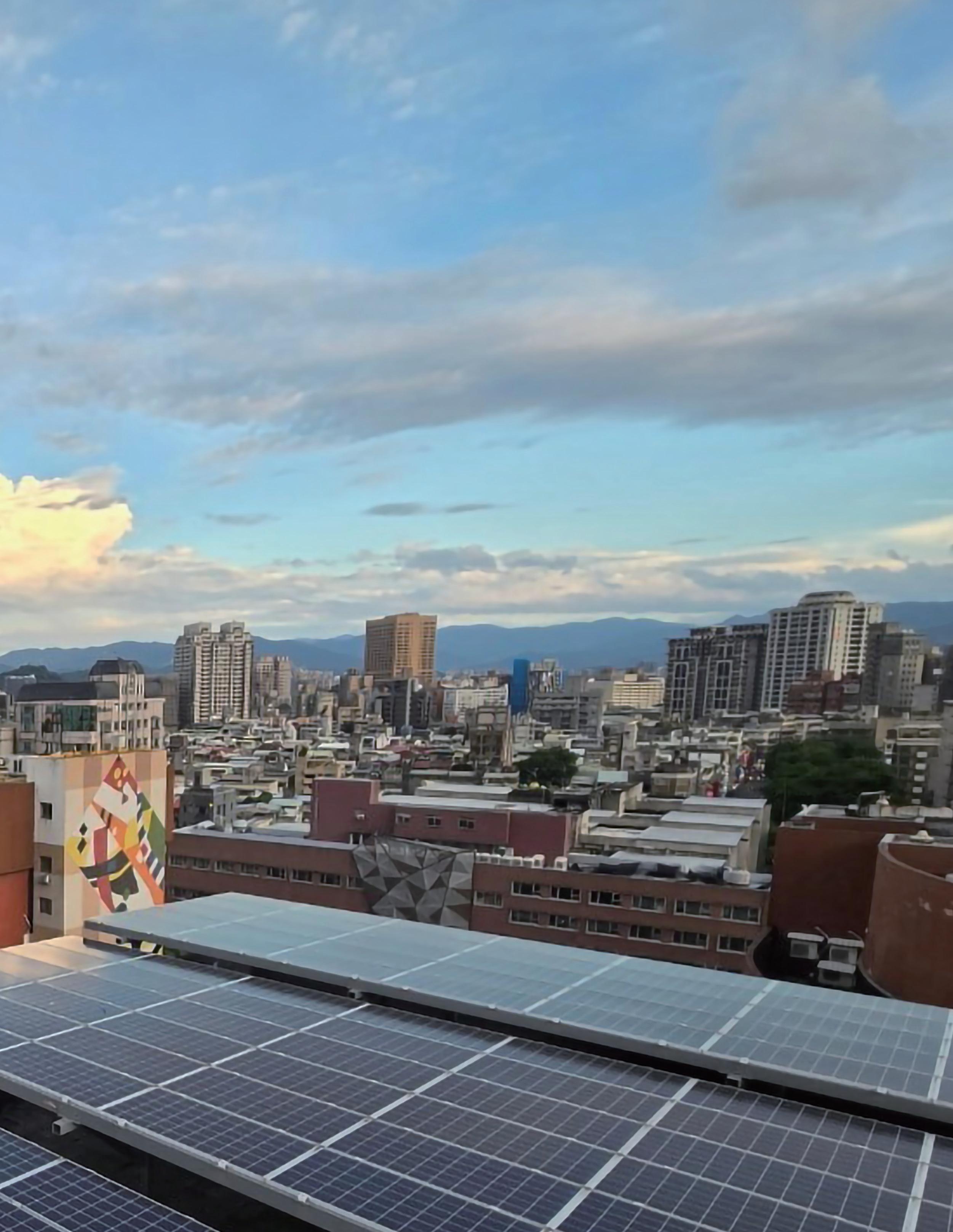
As global temperatures rise and ecosystems face increasing threats, the urgency of sustainability has become undeniable. National Taiwan Normal University (NTNU) demonstrates its commitment through leadership in sustainable practices. The university has earned recognition with the Star Gold Award from the Association for the Advancement of Sustainability in Higher Education (AASHE), solidifying its position as a leader in Taiwanese higher education.
NTNU is the second Asian institution to receive the Gold Star designation from AASHE, a global organization that evaluates higher education institutions on sustainability. "The award assesses four key areas: research and curriculum, community and student engagement, facility and environmental management, and administration and policy," explained Professor Tzu-Chau Chang, director of the Sustainability Development Office. "Our university is committed to reducing carbon emissions and enhancing energy efficiency, with the goal of achieving zero emissions by 2050. With no established models, we are forging our own path."
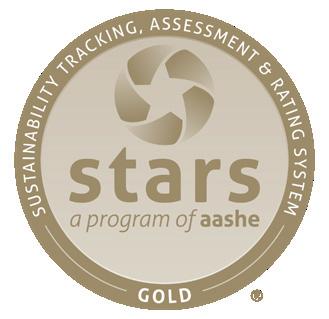

This goal of achieving zero carbon emissions by 2050 aligns with the Paris Agreement’s targets, contributing to the global effort to limit temperature rise to 1.5°C above pre-industrial levels. The university’s initiatives also support several United Nations Sustainable Development Goals (SDGs), including SDG 7 (Affordable and Clean Energy) and SDG 13 (Climate Action), by advancing renewable energy technologies and promoting energy efficiency across its campuses.
By implementing innovative energy-saving measures and pioneering research in green technologies, NTNU not only meets but exceeds the benchmarks set by leading universities worldwide, contributing meaningfully to international climate goals. This comprehensive sustainability strategy serves as a model for other institutions and supports global climate action. Through energy-saving measures, research in green technologies, and community engagement, the university promotes sustainability on both local and global levels.
Since 2013, NTNU has emphasized sustainability through green procurement, achieving a 98.53% procurement rate in 2020 for environmentally friendly, energy-saving products. The university has implemented measures to prioritize food and beverage ingredients that are traceable, organic, and free from genetically modified items. Additionally, NTNU maintains strict waste management protocols, with the Environmental Safety and Health Center and the Toxic Chemical Substance Operation Management Committee overseeing safe chemical disposal and recycling efforts.
NTNU has made significant strides in minimizing energy consumption across its campuses through initiatives spearheaded by the university's Environmental and Public Safety Center. These efforts have been recognized with the Energy Saving Benchmark Award from Taiwan’s Ministry of Economic Affairs. Professor Horng-Sheng Mii,
the Director of the Center, emphasized the implementation of several key measures across NTNU's three campuses. Among these initiatives, the university replaced the central air conditioning system in its libraries with an efficient watercooling system, upgraded air conditioning units older than 12 years to energy-efficient models with regular maintenance, and installed systems in elevators to recover energy that would otherwise be wasted. NTNU also introduced six power-generating cycles at the Gongguan campus to raise sustainability awareness and deactivated heating and cooling functions on drinking fountains during holidays to save energy. Additionally, smart lighting systems were installed to optimize energy use, including LED lights with timers in public areas and a smart lighting system in the gymnasium, which alone saves 152,000 kWh of electricity annually while reducing carbon dioxide emissions by 76 metric tons. Water conservation was also addressed with the installation of mechanical foot pedal faucets, reducing water usage by over 65%, and the implementation of new fume hood systems in the College of Science building, conserving 30,000 kWh of electricity annually and reducing carbon dioxide emissions by 15 metric tons. Further contributing to sustainability, NTNU has installed solar panels on rooftops at the Heping II campus, contributing 325 kW to the grid, with additional installations planned at the Linkou campus, expected to generate up to 2,814 kW.
NTNU extends its sustainability efforts through collaborations with industry to advance renewable energy technologies. The Graduate Institute of Green Energy and Sustainable Technology fosters interdisciplinary innovation and ensures that research outcomes are applicable in realworld settings.
Professor Guan-Chiun Lee, Associate Dean of the College of Industry Academia Innovation (CIAI), emphasized the institute’s focus on cultivating talent and developing technologies for industrial partnerships. A collaboration with Chant Oil Co., Ltd. aims to refine the biodiesel production
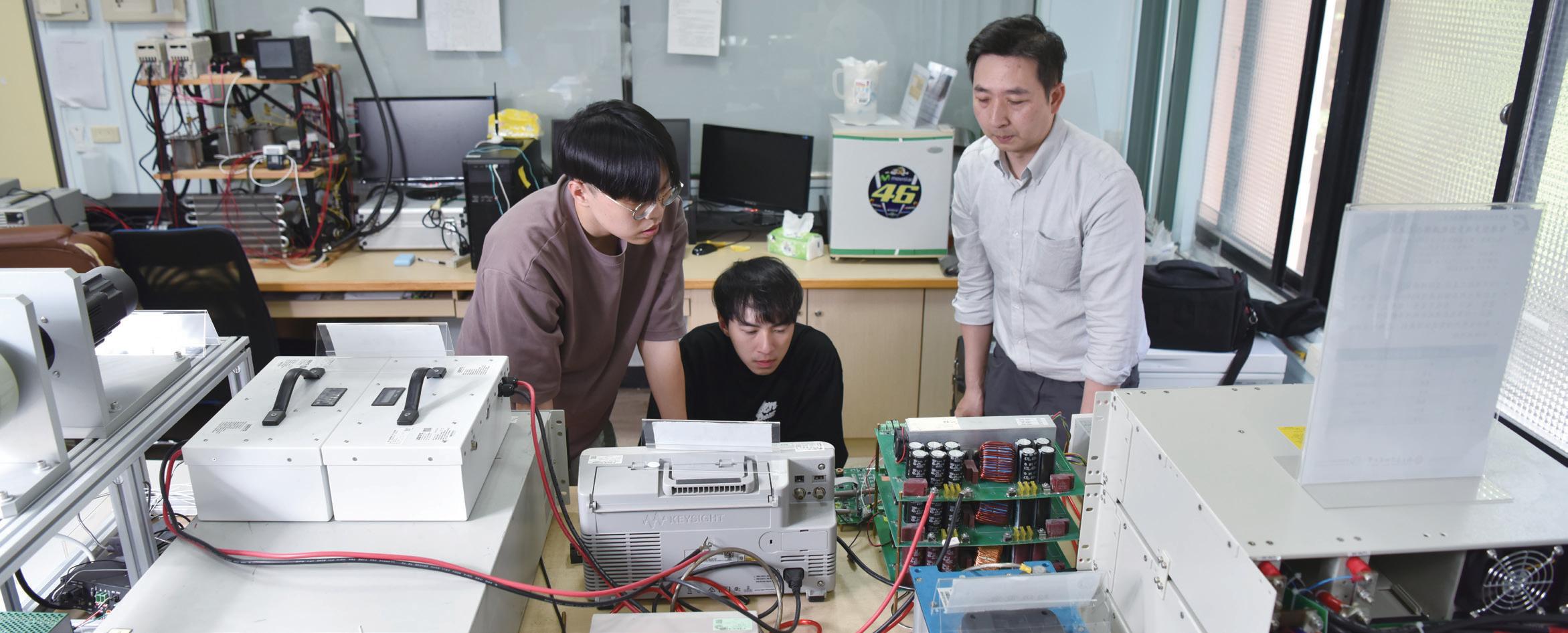
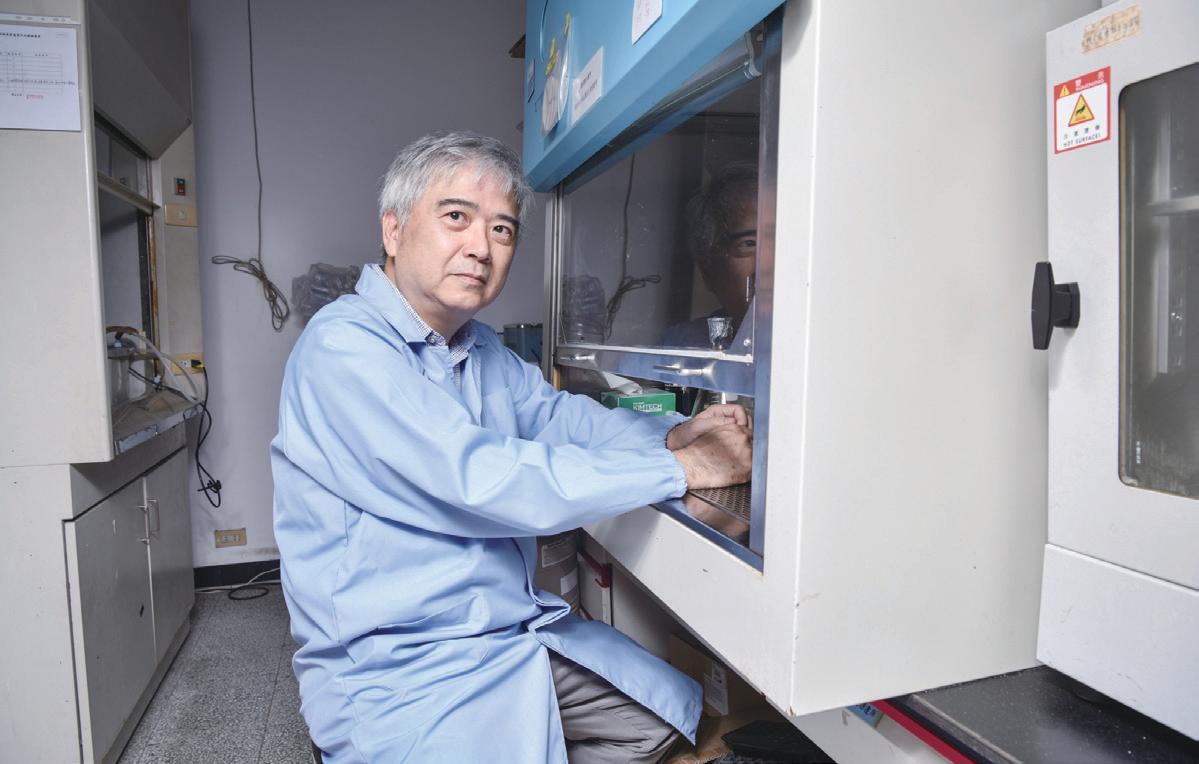
process. "The traditional method required caustic alkali and high temperature, which were both energy-intensive and polluting," explained Professor Lee. "We have engineered GMO microorganisms that produce enzymes to catalyze biodiesel production. This process maintains reaction times while significantly reducing costs and emissions, making it commercially viable for the industry." Plans are underway to construct a large-scale experimental fermentation laboratory near NTNU’s Linkou Campus to support further technological advancements.
The university is also partnering with industry to produce green hydrogen through the electrolysis of water using renewable energy sources. This research is essential for developing a sustainable hydrogen economy, reducing dependence on fossil fuels, and lowering carbon emissions.
Pioneering Research in Green Energy
NTNU’s commitment to sustainability is further demonstrated by its pioneering research in green energy. The Advanced Materials and Green Energy Research Center leads the development of technologies leveraging advanced materials such as two-dimensional semiconductors and organic/inorganic hybrid perovskites to create more efficient and sustainable energy solutions.
Professor Yu-Chiang Chao’s research on solar energy highlights NTNU’s impact. His work focuses on improving the efficiency, stability, and scalability of solar cell technologies. Notably, his use of a hexagonal framework of TiO2 nanowalls to enhance dye-sensitized solar cells has achieved a power conversion efficiency of 7.7% over a large active area for polymer solar cells. This advancement represents a significant leap in solar technology and holds promise for cost-effective and scalable energy solutions.
Professor Guan-Chiun Lee also underscores the university’s comprehensive approach, encompassing all facets of green energy and sustainability, including production, conservation, storage, and hydrogen energy research.
NTNU is at the forefront of integrating artificial intelligence (AI) into various aspects of sustainability, with significant initiatives in both energy systems and environmental management. In energy systems, NTNU has launched several projects aimed at optimizing energy solutions through AI. One prominent example is the design of power grids that manage complex power systems incorporating solar panels, energy storage batteries, and other energy
sources. A notable outcome of this effort is the start-up NeoPower Technologies, co-founded by Professor SyuanYi Chen from the Department of Electrical Engineering and Professor Yi-Hsuan Hung from the Undergraduate Program of Vehicle and Energy Engineering. This start-up has developed a hybrid energy system that uses lithium and fuel cells, with AI algorithms determining the most efficient power allocation strategy under specific conditions. Although the technology has demonstrated energy savings by 6 to 34 percent, it remains ahead of current market adoption, with manufacturers yet to embrace hybrid battery sources. Professor Chen predicts it may take up to five years for the industry to catch up.
In addition, Chen’s research team has developed an energy management system to optimize energy flows in microgrids integrating multiple energy sources, including solar, battery, and utility grid. This energy management system takes into account weather conditions, electricity pricing, and energy needs to simultaneously maximize energy efficiency and minimize electricity cost. The technology is already applied in electric bus charging stations, optimizing charging schedules and powers based on route, passenger load, weather conditions, and real-time traffic to prevent backlogs and avoid energy waste. Future developments are aimed at creating a consumer version for individual electric vehicle users.
”NTNUispioneeringtheintegration ofAIintoenergysystems,with innovationslikeahybridenergy managementsystemthatoptimizes powerallocationandenhances efficiencybybetween6to34%.“

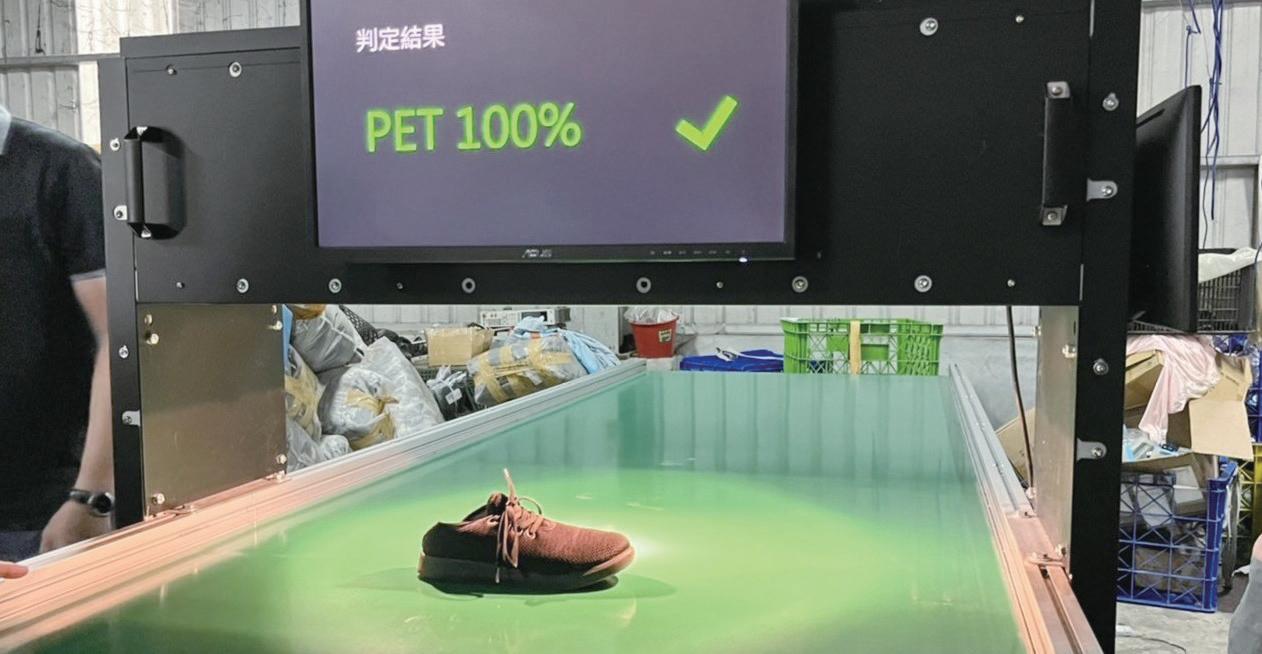
Beyond energy systems, researchers at NTNU are also exploring AI applications in other areas of sustainability. At the Institute of Electro-Optical Science and Technology, Professor Jen-Jie Chieh, in collaboration with the university, established Pade Technology Co., Ltd. This company has developed a Smart Textile Material Classification System that employs near-infrared light rapid remote sensing combined with AI algorithms to enhance the accuracy of waste textile sorting. This innovation allows recyclers to produce highquality recycled textiles, thereby contributing to a more sustainable textile recycling infrastructure.
Engaging the Community in Sustainability
NTNU recognizes that sustainability requires active community engagement, organizing an annual Sustainability Festival to unite students, faculty, and the community through workshops, exhibitions, and interactive sessions that promote environmental awareness. The university also hosts a lecture series featuring experts on sustainability, fostering informed discussions and encouraging actionable responses among attendees.
Student organizations like the Green Student Society are instrumental in advancing environmental awareness, organizing events and volunteer activities that empower student participation in sustainability efforts. Additionally, NTNU has partnered with Fubon Life Insurance to establish the Plastic Reduction and Sustainable Consumption Center, which hosts educational workshops and beach cleanups throughout the year.
Looking Ahead: NTNU's Role in Shaping a Sustainable Future
NTNU's approach to sustainability integrates green procurement, energy conservation, waste management, and innovative research across its operations. By embedding environmentally conscious practices into campus life and extending these efforts into the broader community, NTNU contributes to global initiatives aimed at mitigating climate change and advancing sustainable development. The university's goal of achieving zero carbon emissions by 2050, aligned with the Paris Agreement, reflects its commitment to longterm sustainability. As NTNU continues to develop and implement these practices, it provides a model that can be adopted by other institutions, supporting broader efforts toward a sustainable future.
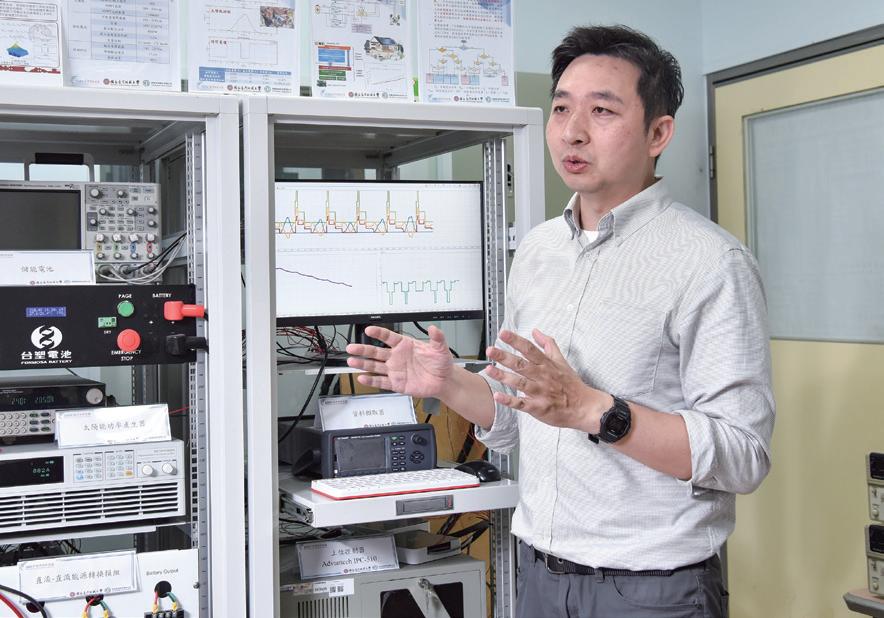
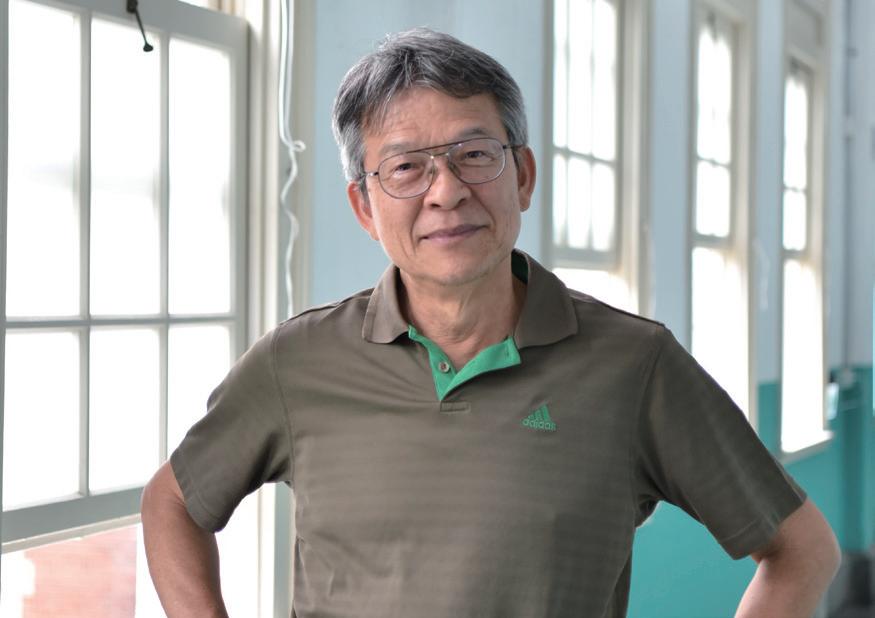
Professor Tzu-Chau Chang, director of NTNU’s Sustainability Development Office, says the university is charting its own course to achieve zero emissions by 2050.
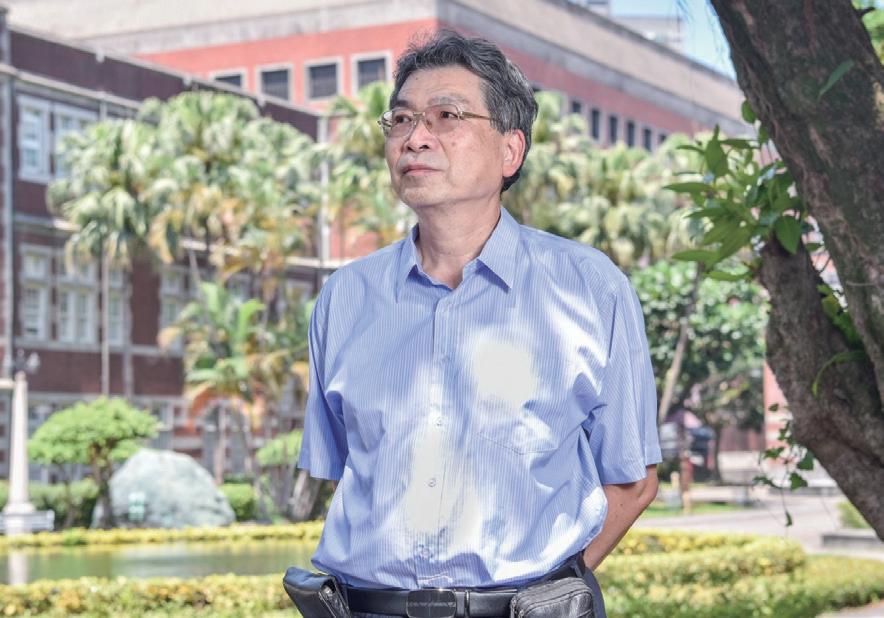
Professor Horng-Sheng Mii's leadership at NTNU’s Environmental and Public Safety Center earned the Energy Saving Benchmark Award for campus conservation.
George Lin, founder of Pacific Cycles, is recognized in the high-end cycling sector for fostering innovation and practical experimentation. Under his leadership, Pacific Cycles has turned creative ideas into successful products, earning awards such as the iF Award Gold, Red Dot, Eurobike Award, IDEA Bronze, Taiwan Excellence Silver Award, and Red Star Award (China). Their designs have been featured in exhibitions, including ‘Why Design Now’ at the Cooper Hewitt Smithsonian Design Museum and ‘Designs of our Time’ at the Design Museum in London.
How has your English major at NTNU and love for literature influenced your approach to business and product design?
My English studies at NTNU exposed me to diverse literature, art, culture, and humanistic views, enhancing my creativity and expanding my worldview. This broader perspective allowed me to see bicycles not only as functional objects but also as cultural symbols, which inspired innovative designs that improve users’ lives, including specialized models for individuals with cerebral palsy and hand-operated bicycles for landmine victims.
You have mentioned that Camus’s The Stranger, shaped your life and business philosophy.
Yes. Existentialism, particularly living by one’s beliefs and disregarding external validation, really resonated with me. It emphasized following my passions and leading a unique life, which guides my business approach. I focus on self-discovery, resilience, and taking unconventional paths to develop impactful products, rather than conforming to mainstream expectations.
As the “Godfather of Taiwan’s Bicycle Industry,” how do you see bicycles contributing to a more sustainable and environmentally friendly world, and how does Pacific Bicycle’s focus on quality, technology, and niche markets support this vision?
Bicycles are vital in sustainable transportation, reducing reliance on fossil fuels, lowering carbon emissions, and decongesting urban areas. We prioritize meticulous
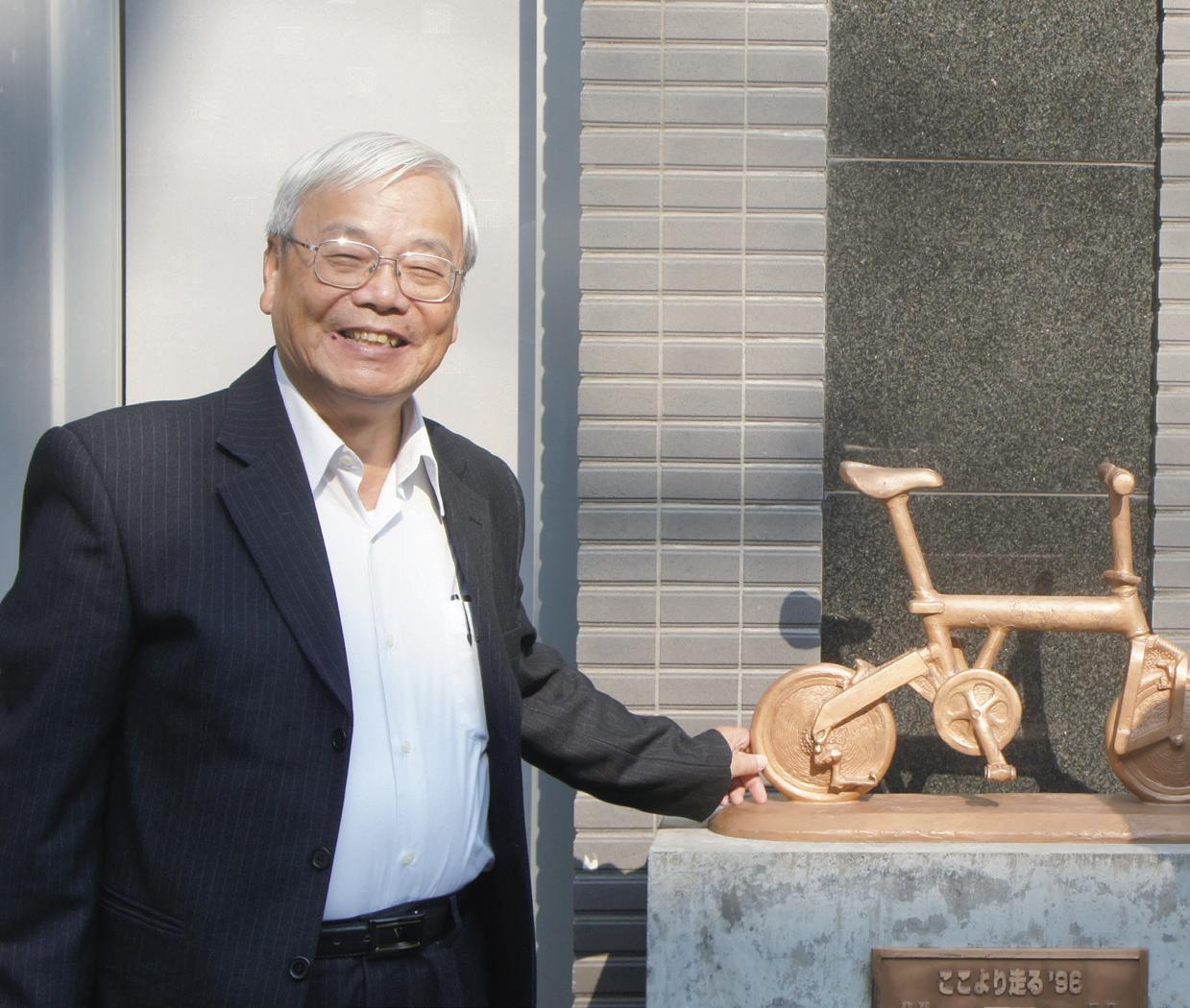
craftsmanship and durability and dedicate about an hour to assembling each bicycle, ensuring longevity and minimizing waste. Careful workmanship produces a superior product, and reduces our environmental footprint. Our focus on technology and serving niche markets avoids the environmental pitfalls of mass production, promoting a greener economy through innovative and sustainable solutions.
How does your commitment to inclusivity in developing bikes for individuals with disabilities reflect your broader goal of social sustainability?
Our inclusivity ensures that everyone, regardless of physical ability, can enjoy cycling. By developing bicycles custom designed for individuals with cerebral palsy, and a handcycle for triathletes and physically challenged athletes, we promote a healthier lifestyle and greater independence. This aligns with our broader goal of social sustainability, creating an environment where everyone can participate in and benefit from sustainable practices.
How does your business model support sustainable practices in the industry from design to delivery?
Our model is based on precision manufacturing and customization. We do not produce a bicycle until a deposit is received, minimizing overproduction and waste. Each design undergoes extensive computer iterations, reducing the need for physical prototypes. By developing durable bicycles that meet unique needs, we contribute to a sustainable cycle of use and reuse, essential for a healthier planet.
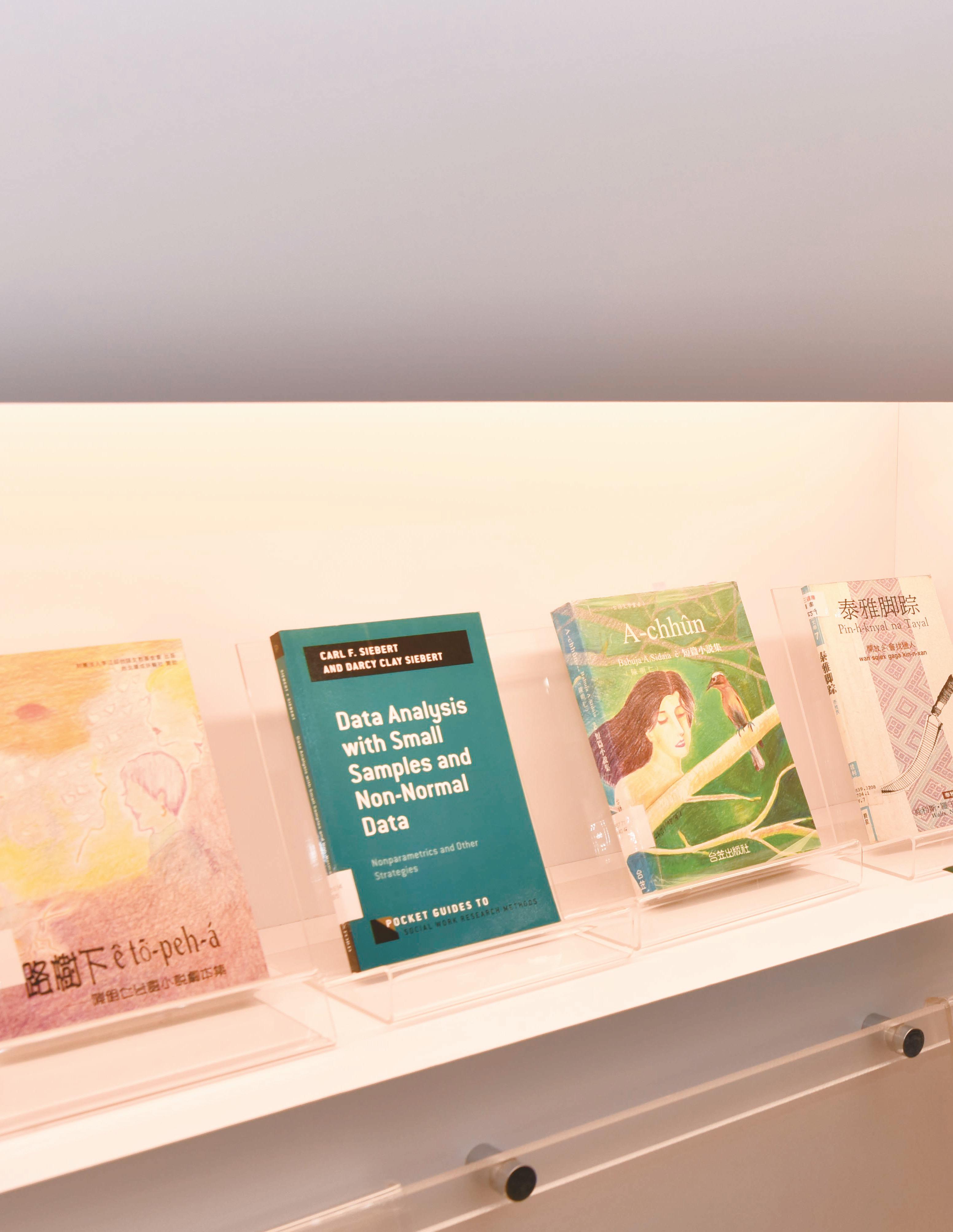
NTNU reflects Taiwan’s commitment to integrating linguistic and cultural diversity in higher education. As the university progresses in its internationalization efforts, it offers courses in English as a Medium of Instruction (EMI) as well as in Taiwanese, Hakka, indigenous languages, and sign language. This approach supports both the global academic community and the preservation of Taiwan's cultural and linguistic heritage.

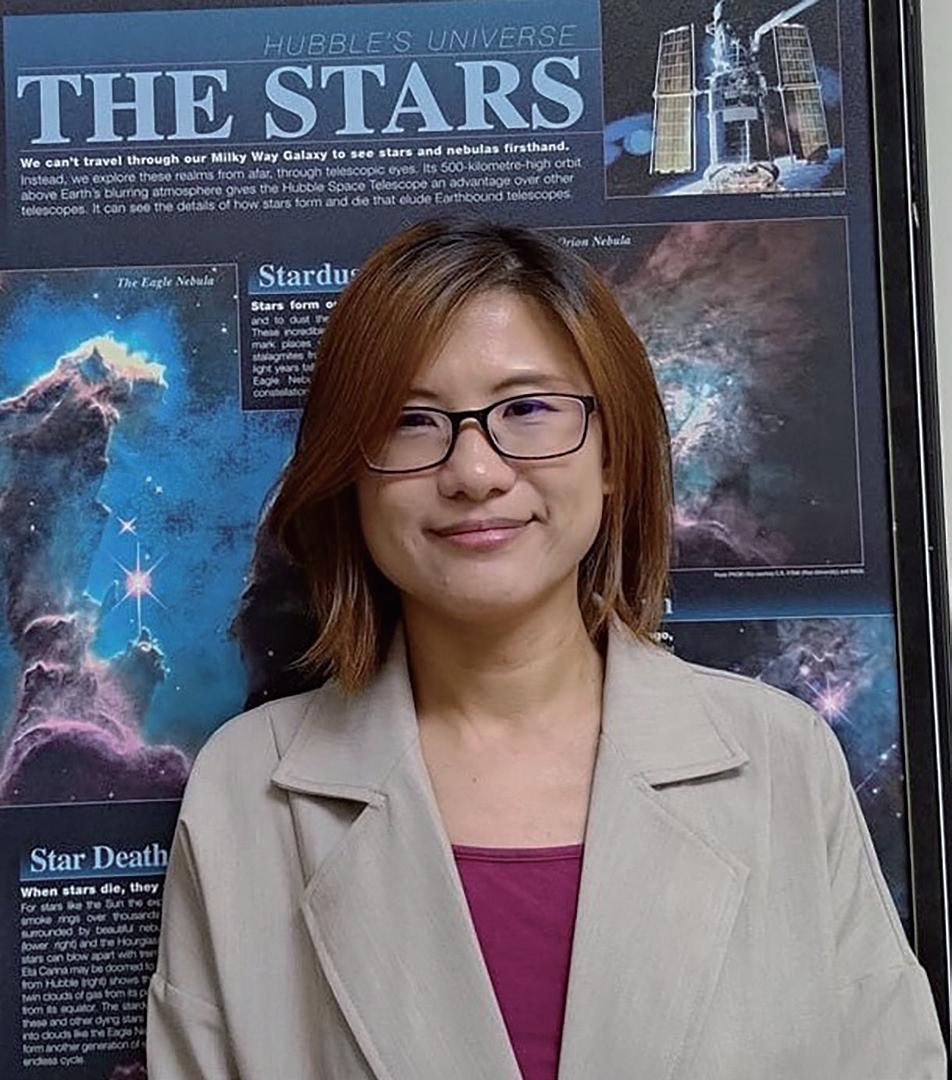
The global increase in EMI has become a significant trend in higher education, with universities worldwide adopting it to enhance competitiveness and accessibility. A study by Dearden (2015) reported that EMI courses are provided by about 80% of public and over 90% of private universities across 55 countries. This trend, notably strong in Europe— where EMI programs grew by 1000% from 2001 to 2014—can also be seen in Asia.
In response to this global trend, NTNU has positioned itself as a leading institution in EMI. Since being recognized by Taiwan’s Ministry of Education as a benchmark for ChineseEnglish bilingual education in 2011, NTNU has expanded EMI within its curriculum. This initiative includes developing organizational systems, training teachers, creating courses, supporting students, and ensuring quality. The Ministry has further supported these efforts with increased funding for the second phase of NTNU’s bilingual program (2023-2025).
NTNU’s President, Cheng-Chih Wu, highlights the university’s focus on expanding educational opportunities through EMI. This is reflected in NTNU’s Resource Center for EMI (RCEMI), which collaborates with faculty and students to address challenges and provide necessary support. The initial phase of the bilingual plan introduced a four-stage teacher development program, resulting in many full-time faculty earning Cambridge and Oxford EMI certifications.
NTNU has reshaped its academic landscape through various programs and teaching strategies. Under the leadership of Chief Executive Officer Mei-Hui Liu, NTNU has expanded its global engagement, reflected in the 60% growth of its EMI courses over the past two years. A key initiative is the Bachelor's Degree Program in Global Studies in English, which will welcome its first cohort in the 2024-2025 academic year.
NTNU has also reformed its English curriculum to include common, academic, and professional English, enhancing students' bilingual skills. This reform has doubled student enrollment in EMI courses, with nearly 10,000 students participating in 2011. To support this growth, NTNU established the Center for Academic Literacy, providing tutoring in academic English writing and presentations, alongside extracurricular English learning activities, which have seen strong participation. Beyond academic innovation, NTNU is committed to student success through a robust framework of support systems. The university’s focus on plurilingual education is evident in its efforts to integrate local languages alongside internationalization. This includes national language development conferences and financial incentives for teachers of these languages, ensuring the preservation of Taiwan's cultural and linguistic heritage while embracing a global outlook.
Integrating Local Languages and Adapting Teaching Practices for Plurilingual Education
Taiwan is home to 16 indigenous nations, with 20 different spoken languages. NTNU’s commitment to plurilingual education is deeply rooted in the integration of local languages and the adaptation of teaching practices to meet the needs of a diverse student body. Central to this effort is the promotion of indigenous languages and culturally responsive teaching methods. Associate Professor Tibusungu e Vayayana (Ming-Huey Wang) of the Department of Geography advocates for bringing indigenous languages and cultures into the mainstream curriculum, emphasizing the importance of preserving these languages as a vital part of students’ identities. "In the past, indigenous students in the mainstream education system refrained from speaking their language to avoid discrimination, and as a result, these languages now face extinction," he explains. "Now, indigenous students will proudly claim their identity in their body and status—their ‘hardware,’ but they have suffered a loss in the ‘operating system’ of language and culture. Culturally responsive teaching and learning is integral to a whole-
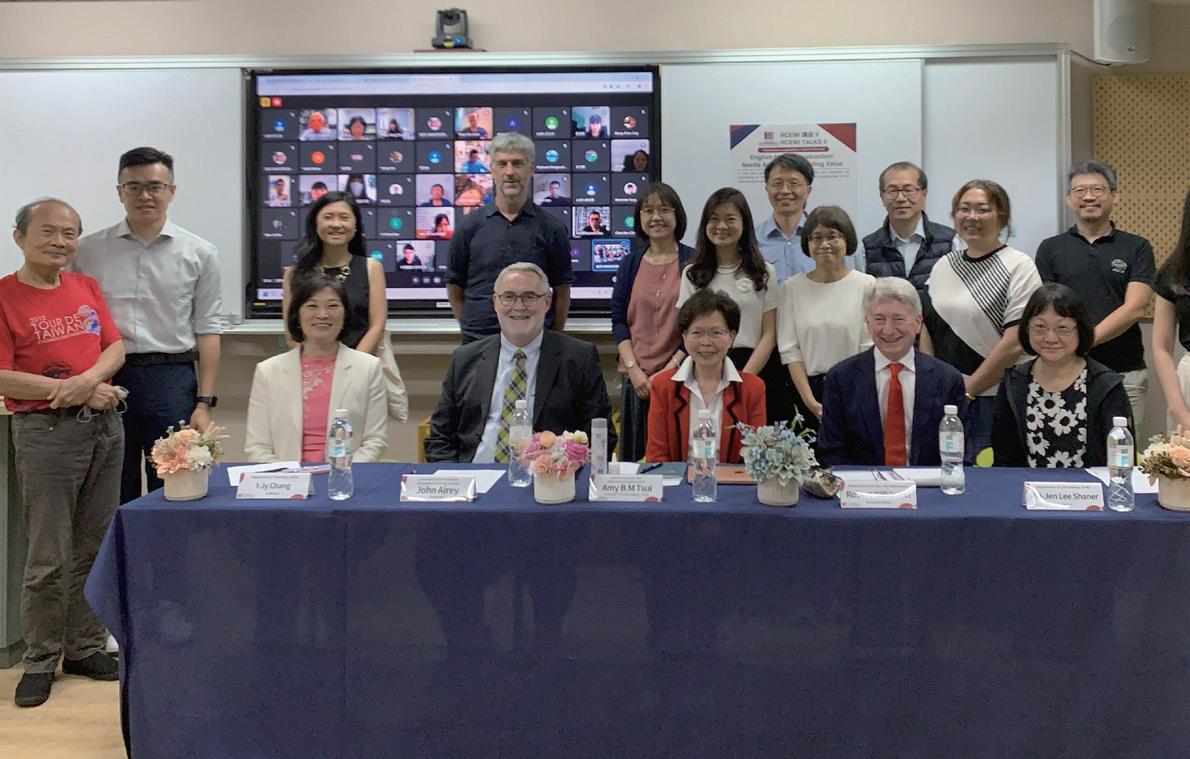
person education."
This perspective is reflected in the experiences of faculty and students alike. Hong Kong-born Professor Frank Wong, for instance, was among the first to offer a Python programming course in Taiwanese, despite it not being his native language. His dedication to teaching in local languages has provided students with a platform to practice and preserve their linguistic heritage. "There is often a misconception that the class is a language class,” Wong explains. “I teach using Taiwanese, but I am not a language teacher." Inspired by Wong’s efforts, Dr. An-Li Tsai, an Adjunct Assistant Professor in NTNU's Department of Earth Sciences and the recipient of a Ministry of Education award for her contributions to preserving the local language, now offers a semester-long course in Astronomy taught entirely in Taiwanese. Dr. Tsai notes that teaching a highly academic subject through a colloquial language like Taiwanese presents unique challenges, particularly in coining new terminology for emerging scientific concepts. "There are colloquial terms for the sun ( 日頭 ) and the moon ( 月娘 ), but they are very much earth-centric and convey a sense of emotion. They’re not suitable for describing other solar systems," she explains. "However, new terminology needs to be approachable and not overly esoteric or literary." Her course not only enriches the academic environment with local language
"BypromotingEnglishasaMedium ofInstruction(EMI)alongside Taiwanese,Hakka,andindigenous languages,NTNUpreservesTaiwan’s culturalheritagewhileembracing internationalization."
instruction but also exemplifies the innovative adaptation required to maintain linguistic and cultural relevance in modern education.
The inclusion of national language varieties in the curriculum empowers students and fosters a sense of belonging. Pinna, a rising junior, expressed her surprise and appreciation for the Taiwanese language classes, saying, "I was surprised that there was a university subject offered in Taiwanese. I’m from southern Taiwan, where Taiwanese is often spoken, so this gave me a sense of belonging." Sandy, a senior majoring in Math, found inspiration in Professor Wong’s commitment to learning and teaching in a new language. "The teacher is from Hong Kong, so he is not a native speaker of Taiwanese. It is inspiring to me that he is also learning the language," she notes.
NTNU’s faculty have also shown significant flexibility in adapting their teaching methodologies to support students in a plurilingual environment. At a recent EMI conference, Professors Pei-Jen Lee Shaner and I-Jy Chang showcased
their innovative instructional approaches. Professor Shaner, who teaches ecology courses in both Chinese and English, adjusted her teaching methods to include direct instruction in Chinese alongside interactive sessions in English. "I found that students could cover more topics and provide more examples when using Chinese, while the EMI course fostered greater interaction," she observed.
Similarly, Professor Chang's use of the flipped classroom model in EMI courses has enhanced student engagement and language skill development. Her method, involving pre-recorded class videos followed by quizzes and practical exercises, has improved comprehension and encouraged active participation in English. "This approach not only improved understanding but also fostered active participation and discussion," Chang explained.
By integrating local languages and adopting flexible teaching practices, NTNU enriches its academic environment and ensures that all students—regardless of linguistic background—have the opportunity to succeed. Expert Insights, Interdisciplinary Collaboration, and Cognitive Benefits of Plurilingualism
NTNU’s educational approach is bolstered by expert insights and interdisciplinary collaboration, which emphasize the cognitive and academic benefits of plurilingualism. Professor Amy B. M. Tsui of the University of Hong Kong, a Yushan Fellow and visiting chair professor
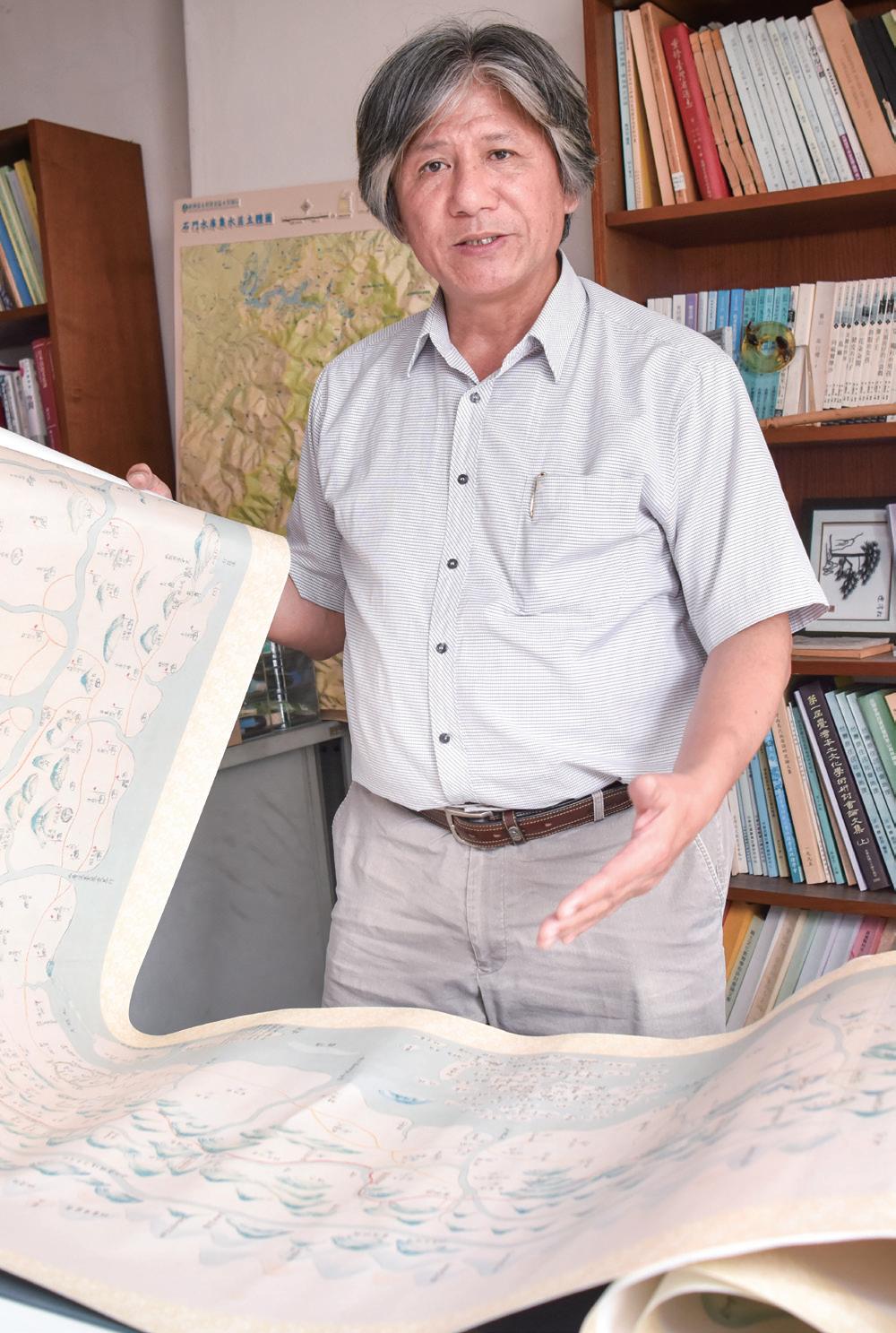
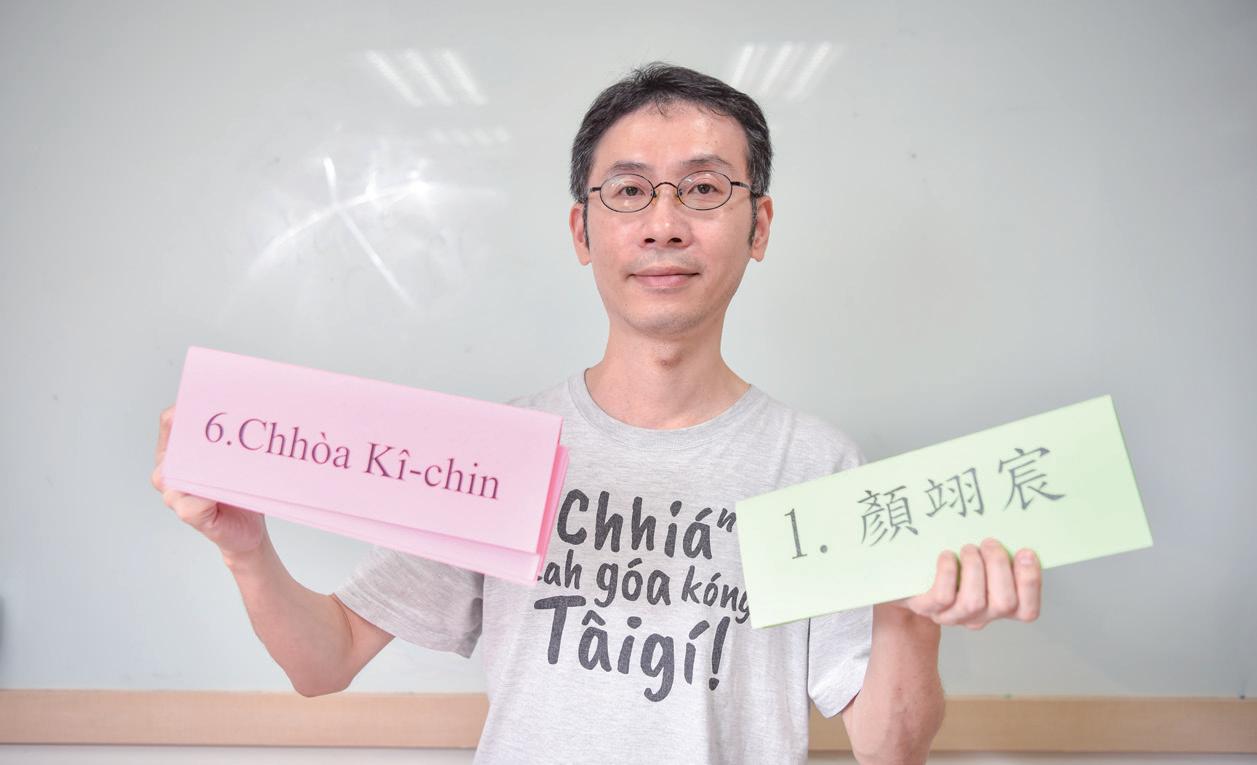
at NTNU, addresses a common misconception: using another language to teach a subject will necessarily result in acquisition of that language. "It’s about learning how disciplinary knowledge is constructed through another language," she explains, highlighting the need to understand that language and content knowledge are inextricable.
During her time at NTNU, Professor Tsui has been impressed by significant faculty dedication to mastering EMI pedagogical strategies. She highlights the importance of EMI teachers conducting research on their own teaching so that their pedagogical strategies are evidence-based. To promote this, she brought in eminent EMI research scholars from the UK, Sweden, Spain and The Netherlands to share their insights at an International Forum in April 2023 and a seminar in March 2024, and to collaborate with NTNU teachers. Teachers who have presented their research findings in these events and have been collaborating with Professor Tsui and international scholars come from wide-ranging disciplines, including computer engineering, ethnomusicology, ecology, interior design, chemistry, earth sciences, history, and physics. Their work will be presented in an International Symposium on Collaborative Construction of Knowledge through EMI on October 25-26, 2024 at NTNU.
Research also supports NTNU's strategies, demonstrating the cognitive benefits of plurilingualism. Studies by Flores and Rosa (2015) and Tupas (2015) show that linguistic diversity in higher education promotes a more inclusive and equitable environment, challenging the dominance of major languages and enriching academic discourse by embracing multiple languages.
Professor Tsui concurs, stating that "for internationalization in higher education, EMI is inevitable, whether you like it or not." She praises Taiwan’s efforts in maintaining a plurilingual society, where cultural diversity is valued both within the community and the university. "Taiwan has excelled in preserving a plurilingual society. Cultural diversity is valued not only in the community but also in the university," she notes.
This blend of expert insights and interdisciplinary collaboration with the cognitive benefits of plurilingualism illustrates how NTNU’s educational framework is both forward-thinking and deeply committed to fostering a more inclusive, globally-minded academic environment.
NTNU plans to advance its plurilingual education initiatives by expanding its curriculum, including courses like chemistry taught in Hakka and astronomy in Taiwanese. The second phase of the EMI plan will also expand the Global Virtual Classroom and strengthen collaborations with sister schools through online courses, reflecting the concept that "the classroom is the world."
Additionally, NTNU will extend its influence by offering national university consulting services through the EMI Teaching Resource Center, sharing expertise to promote bilingual programs and build a future based on shared knowledge.
NTNU’s comprehensive approach integrates global and local languages through innovative systems, teacher development, and strong student support. This strategy is being implemented to meet the demands of a globalized job market but also preserves Taiwan’s cultural and linguistic heritage. NTNU’s focus on educational innovation and interdisciplinary collaboration reinforces its position as a leader in the interconnected world of higher education.
By promoting EMI alongside local languages, NTNU addresses the diverse needs of its student body and sets a standard for educational excellence. As NTNU evolves with globalization, it remains anchored in its cultural heritage, demonstrating that true internationalization involves integrating one’s identity into the broader academic narrative.
"NTNU exemplifies how institutions can navigate the complexities of globalization," says President Wu. "We are fostering a vibrant, culturally rich campus that reflects the intricate dynamics of the world beyond our walls." This balance of global and local perspectives positions NTNU as a leader in higher education and equips its students to thrive in a culturally complex world, moving toward a more inclusive and multifaceted academic future.
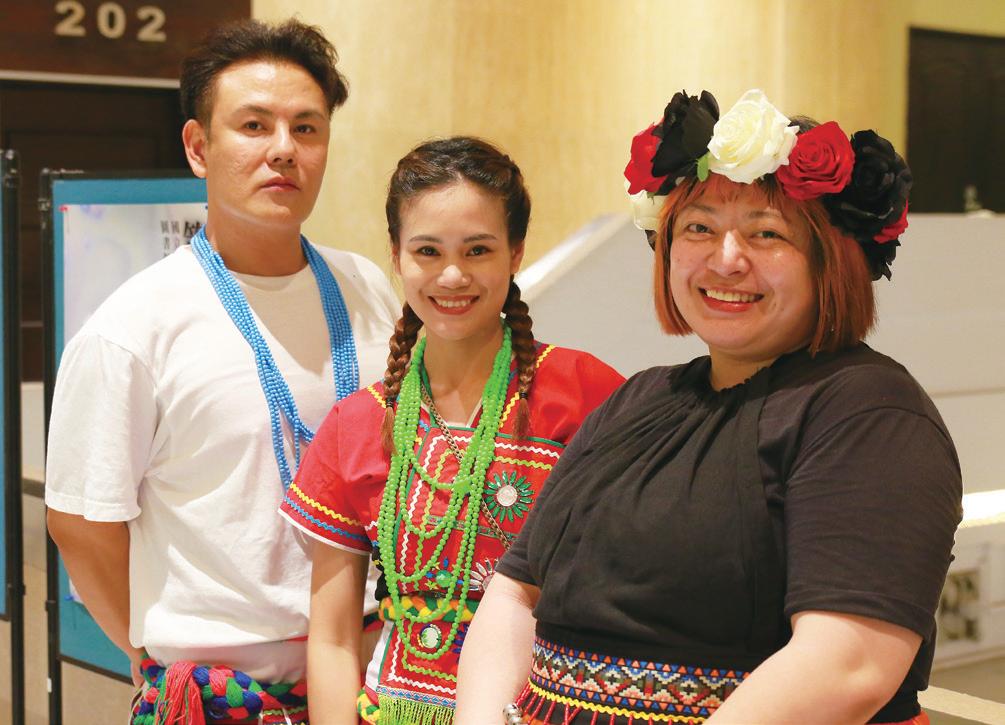
Professor Richie Howitt Faculty of Geography
With his recent appointment as a Yushan Scholar at NTNU, Professor Richie Howitt introduces a rich legacy of academic and social engagement to the university. Throughout his distinguished career, dedicated to geography, indigenous rights, environmental management, and social responsibility, Howitt has consistently fostered intercultural understanding and collaboration. His emphasis on meaningful dialogue that focuses on listening to voices of the Other reflects his commitment to enriching NTNU’s academic community.
A member of the Order of Australia and recipient of accolades including the Macdonald Holmes Medal, Howitt is known for examining how spatial representations and geographical exclusions influence social and environmental policies. He advocates for an inclusive approach that acknowledges indigenous rights and voices. His work in sociogeomorphology offers perspectives on harmonizing environmental processes and human interactions to promote sustainable practices.
At NTNU, Howitt is currently collaborating with Professor Tibusungu 'e Vayayana (Ming-Hui Wang) on teacher training efforts in Taiwan’s indigenous schools. Howitt emphasizes the role educators play in challenging biases and valuing indigenous knowledge in education. Critiquing systems that view cultural differences as problems, he advocates recognizing these differences as enrichments. "Often non-mainstream languages are seen as obstacles by hegemonic language systems at schools and universities,” he said. “But languages bring ontological understandings beyond mere translation, drawing on deep and wide engagement with the world.”
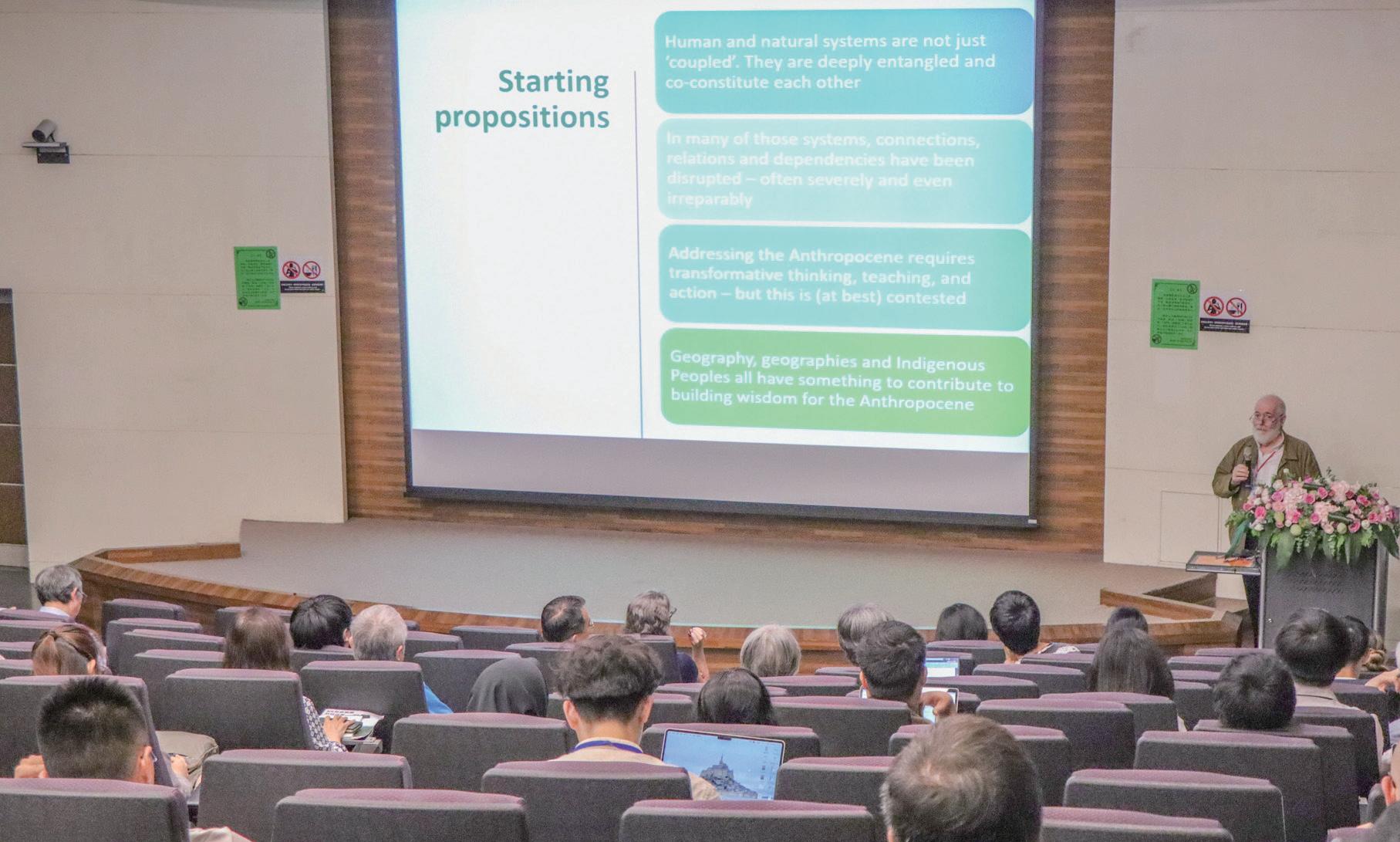
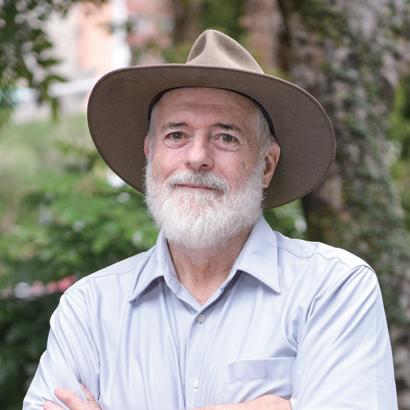
Echoing Jacques Derrida, Howitt reflects on the importance of preserving cultural identity through language: "When your voice is taken away, there is an erasure of your own culture and identity." He believes true understanding requires attentive listening, particularly relevant in Taiwan. Unlike traditional colonial histories marked by white dominance, Taiwan's history involves multiple occupations without completely eradicating indigenous cultures. "Colonial history typically aligns colonialism with Eurocentrism; however, in Taiwan, indigenous populations have faced multiple non-European occupations where the colonial impact has been less than complete," he explained.
“Taiwan has so much to say about what has been, and what can become, that will enrich the rest of the world.”
During his tenure at NTNU, Howitt plans to facilitate interactions between Australian First Nations scholars and Taiwanese indigenous scholars through in-person and virtual platforms. “This is my ninth visit to Taiwan,” Howitt remarked. “I look forward to promoting academic exchanges between NTNU and Macquarie University and creating new opportunities for Australian First Nations scholars to connect with Taiwan's First Nations scholars. My goal is to build a lasting legacy of community and institutional scholarly and cultural connections.”
Taiwan's unique colonial history provides a distinctive context for these discussions. Howitt noted that Taiwan's layered colonial past, involving
dynastic powers from China, the Japanese period, and the Republic of China, highlights a complex history of governance shaping the island's cultural and political landscape. “Taiwan has much to share with the world about their remarkable transition to democracy after one of the longest periods of martial law in history,” he said. “This includes the indigenous movement from suppression to recognition and apology. There have been many hiccups, and the process is ongoing, but there are many lessons and productive conversations to be had about what has been and what can become, which will enrich the rest of the world.”
“Rather than regarding Taiwan as a geopolitical prize to be fought over, Taiwan needs to build itself up from the inside rather than be claimed by the outside,” he said. “Taiwan is hampered by a lack of confidence in its voice, and many think they need to be validated by Western society to be heard. But there is something to be heard in Taiwan, not just as a case study or side note.”
Howitt's efforts to connect Australian First Nations scholars with Taiwan's indigenous scholars highlight the power of shared experiences in fostering understanding and collaboration. However, shared foundations do not imply identical solutions. As Taiwan shares its unique narrative of colonial history, democratization, and indigenous recognition, it underscores the need for tailored solutions. Howitt's advocacy for "radical contextualism" emphasizes that while universal themes exist, the specifics of each situation require customized approaches. "Context matters,” he said. “The idea of ‘universality’ prevents innovative thinking."
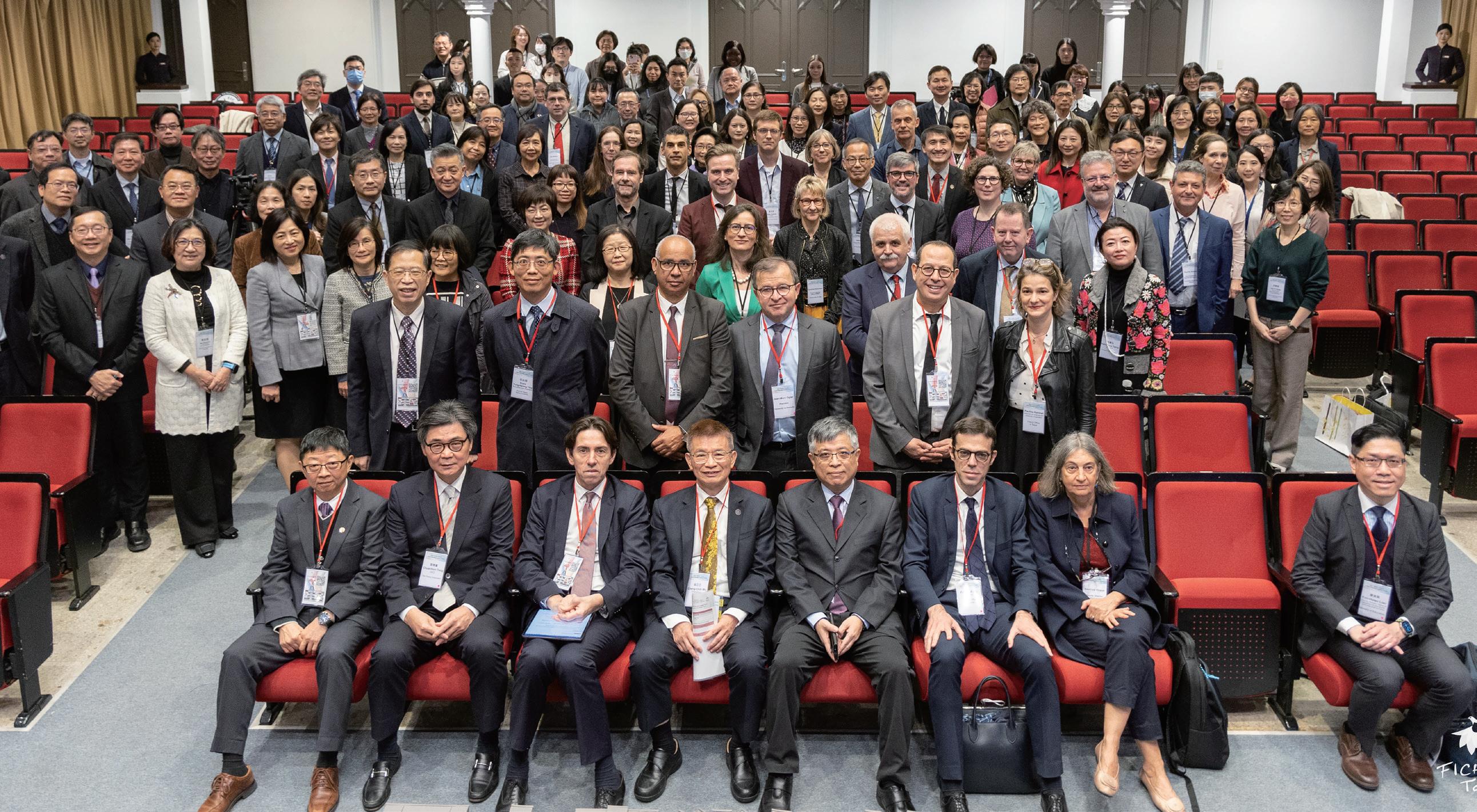
NTNU Connects the World
The recent 2024 Taiwan-France Higher Education Leaders Forum marked a significant milestone in the history of educational exchanges between Taiwan and France. Hosted by NTNU, the forum showcased the enduring partnership and shared commitment toward advancing higher education, research innovation, and language education.
Cooperation
Convened under the auspices of Taiwan's Ministry of Education, in collaboration with the Foundation for International Cooperation in Higher Education of Taiwan (FICHET), the French Office in Taipei, and Campus France Taiwan, the twoday event was attended by over 60 representatives from more than 30 Taiwanese educational institutions, and 20 representatives from 7 French
institutions. The shared objective was to enhance the internationalization of higher education. Discussions focused on promoting scientific and technological research, fostering industry-academia collaboration, advancing talent development, and improving language instruction.
Resilience and Growth of TaiwanFrance Academic Partnerships
NTNU President Cheng-Chih Wu reflected on the longstanding cooperation with France, recalling the inaugural forum in 2017, initiated by a visit from French delegates in 2016. "This forum has established a robust foundation for ongoing cooperation, communication, and mutual understanding, significantly enriching academic and cultural exchanges between our nations," remarked President Wu.
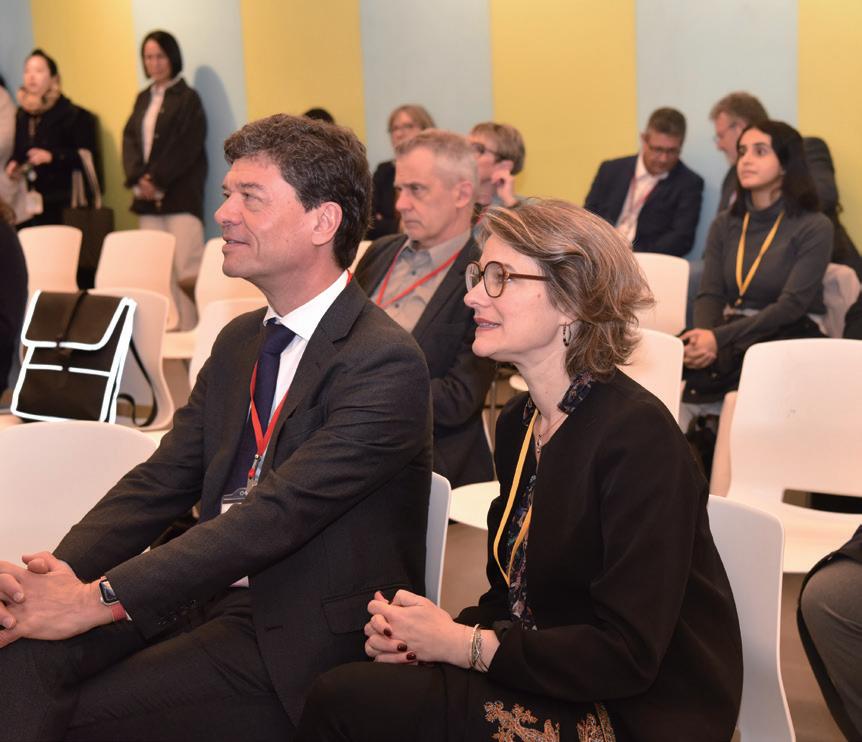
Despite challenges posed by the COVID-19 pandemic, the partnership between the two countries remained resilient. Successful online forums in 2021 and 2022 attracted over 150 participants, ensuring the continuity of this thriving partnership. The forum highlighted the strength of academic collaborations, evidenced by over 875 cooperation agreements between Taiwanese and French institutions. "Currently, 353 Taiwanese students are pursuing their studies in France, and 1,737 French students are studying in Taiwan, underscoring France's role as a pivotal partner for Taiwan," noted President Wu.
Key figures from France, including Deputy General Director Béatrice Khaiat of Campus France, Vice President Lewis Dean of France Universités, and Director Franck Paris of the French Office in Taipei, emphasized the strategic
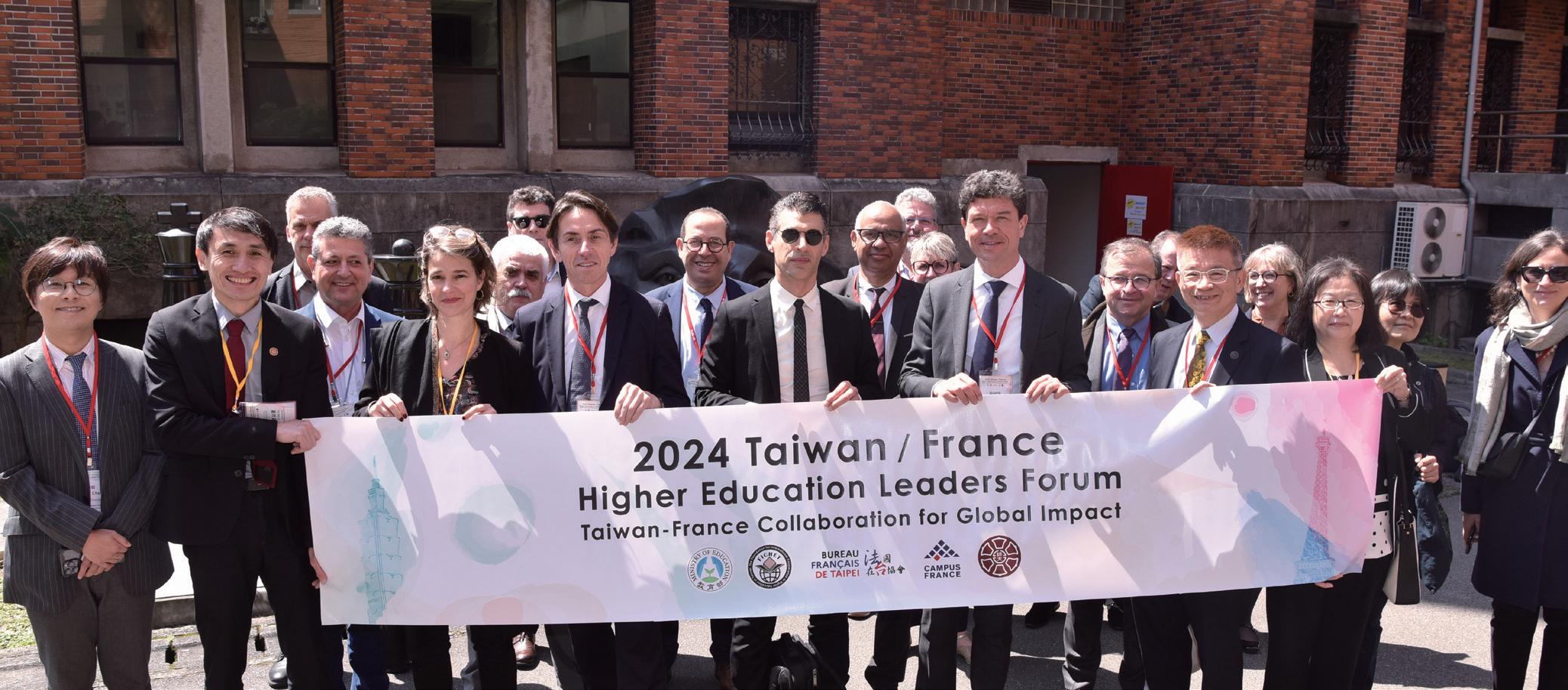
importance of the forum. "Taiwan is an essential partner in international education, and this forum is crucial for promoting scientific and technological cooperation and building bridges between democracies," stated Director Paris.
Fostering Language and Educational Exchanges
The forum featured discussions on language education with a distinguished panel providing insights into the roles of universities in advancing Chinese and French languages globally. The focus was on innovative pedagogical techniques, strategies for language promotion, and the significance of language in educational and cultural exchanges between the two nations.
NTNU's Vice President for International Affairs, Yi-De Liu, highlighted the university's dedication to internationalization and achievements in language education. Jean-François Huchet, president of the Institut National des Langues et Civilisations Orientales (INALCO), discussed the current landscape of Chinese language education in France, focusing on challenges and innovative methods to enhance learning. Jean-Yves Heurtebise, director of the Department of French Language and Culture at Fu Jen Catholic University (FJCU), emphasized the significance of academic and intellectual freedom in language studies. Nil Toulouse, vice president for International and European Affairs at the University of Lille, outlined the university's goals in promoting French language proficiency and developing
international competencies among students. These discussions explored institutional strategies for language promotion, pedagogical innovation, and the pivotal role language programs play in enriching foreign language education.
The panel on Key Development Points for Taiwan-France Science and Technology and Talent Cooperation discussed the potential for expanding collaborations in R&D, manufacturing, and intellectual property protection. Participants focused on critical sectors, including semiconductors, quantum computing, artificial intelligence, and green energy, highlighting the importance of international collaboration in technology and innovation.
Examples of successful collaborations, such as those with leading semiconductor companies, illustrate the tangible benefits of such partnerships. These collaborations provide valuable resources for students and serve as benchmarks for dynamic cooperation between universities and industries.
Beyond discussions, the forum facilitated cultural exchanges. A lunch for delegates at NTNU's historic Wenhui Hall featured performances by students from the Music Department, blending the erhu with the piano in renditions of the French chanson "La Vie en Rose" and the Taiwanese folk song "Crossing Tau Hua."
Accompanied by NTNU's Goodwill Ambassadors, Vice President Yi-De Liu led French visitors on a campus tour, highlighting the Gao Xingjian Center, dedicated to the Nobel Laureate in Literature, and the newly established NTNU Art Museum, with a brief visit to the NTNU gymnastics team's training session.
As the forum concluded, it was evident that the robust ties and shared objectives between Taiwanese and French academic institutions are poised to further enhance bilateral academic partnerships. With plans for the next forum to be held in France, the academic and cultural bonds between the two nations are set for even greater achievements, continuing to enrich the global educational landscape.
